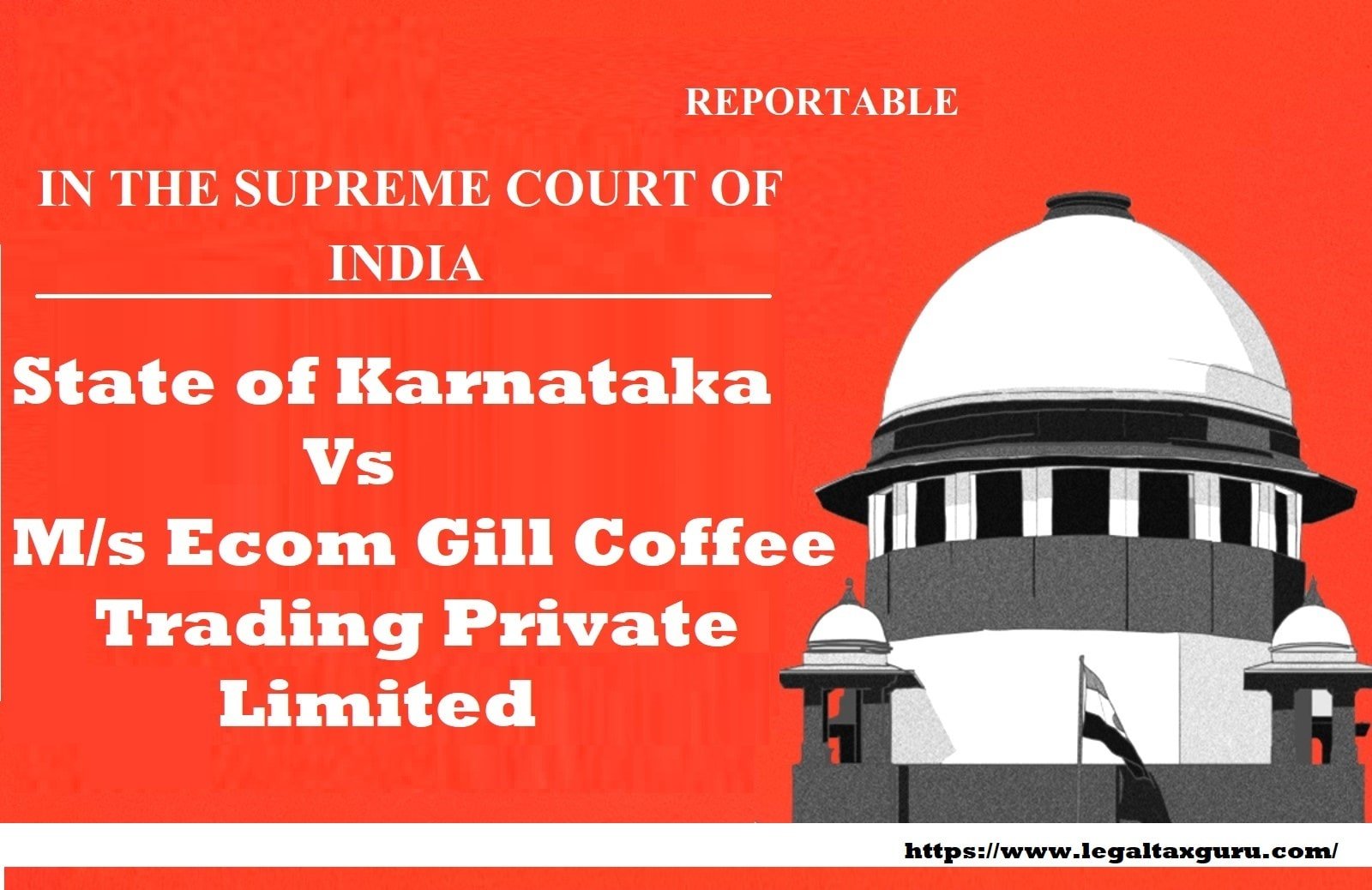

REPORTABLE
State of Karnataka
Vs
M/s Ecom Gill Coffee Trading Private Limited
Appeal Number: Civil Appeal No. – 230 of 2023
Date of Judgement/Order: 13/03/2023
In the present case, Hon. Supreme Court has observed that the provisions of Section 70, quoted hereinabove, in its plain terms clearly stipulate that the burden of proving that the ITC claim is correct lies upon the purchasing dealer claiming such ITC. Merely because the dealer claiming such ITC claims that he is a bona fide purchaser is not enough and sufficient. Such a burden of proof cannot get shifted to the revenue. Mere production of the invoices or the payment made by cheques is not enough and cannot be said to be discharging the burden of proof cast under section 70 of the KVAT Act, 2003.
Section 70 of the Karnataka Value Added Tax Act, 2003
Now so far as the reliance upon the decision of the Delhi High Court in the case of On Quest Merchandising India Pvt. Ltd. v. Government of NCT of Delhi (Writ Petition (Civil) No. 6093/2017, decided on 26.10.2017), relying upon by the learned counsel appearing on behalf of the purchasing dealers is concerned, at the outset, it is required to be noted that before the Delhi High Court, Section 9(2)(g) of the Delhi Value Added Tax Act was under consideration, which reads as under:
“9(2)(g) to the dealers or class of dealers unless the tax paid by the purchasing dealer has actually been deposited by the selling dealer with the Government or has been lawfully adjusted against output tax liability and correctly reflected in the return filed for the respective tax period.”
The burden of proof as per Section 70 of the KVAT Act, 2003 was not an issue before the Delhi High Court. How and when the burden of proof can be said to have been discharged to prove the genuineness of the transactions was not the issue before the Delhi High Court. As observed hereinabove, while claiming ITC as per section 70 of the KVAT Act, 2003, the purchasing dealer has to prove the genuineness of the transaction and as per section 70 of the KVAT Act, 2003, the burden is upon the purchasing dealer to prove the same while claiming ITC.
In view of the above and for the reasons stated above and in absence of any further cogent material like furnishing the name and address of the selling dealer, details of the vehicle which has delivered the goods, payment of freight charges, acknowledgement of taking delivery of goods, tax invoices and payment particulars etc. and the actual physical movement of the goods by producing the cogent materials, the Assessing Officer was absolutely justified in denying the ITC, which was confirmed by the first Appellate Authority.
Both, the second Appellate Authority as well as the High Court have materially erred in allowing the ITC despite the concerned purchasing dealers failed to prove the genuineness of the transactions and failed to discharge the burden of proof as per section 70 of the KVAT Act, 2003. The impugned judgment(s) and order(s) passed by the High Court and the second Appellate Authority allowing the ITC are unsustainable and deserve to be quashed and set aside and are hereby quashed and set The orders passed by the Assessing Officer denying the ITC to the concerned purchasing dealers, confirmed by the first Appellate Authority are hereby restored.
Circular No. 214/1/2023-Service Tax date: 28th February, 2023 An issue has arisen on the levy…
Introduction Consumer protection is a crucial aspect of a well-functioning market economy, ensuring fairness, transparency,…
Circular No. 1076/02/2020- Cx Date: 19th Nov 2020 References have been received from the field…
Union Budget 2025 Key features\Finance Bill 2025 Direct Tax proposals Introduction of a scheme for…
Clarification on various issues pertaining to GST treatment of vouchers- . Circular No. 243/37/2024-GST Dated…
EXEMPTIONS FROM CAPITAL GAINS The Income-tax Act permits a capital gains tax exemption if the…